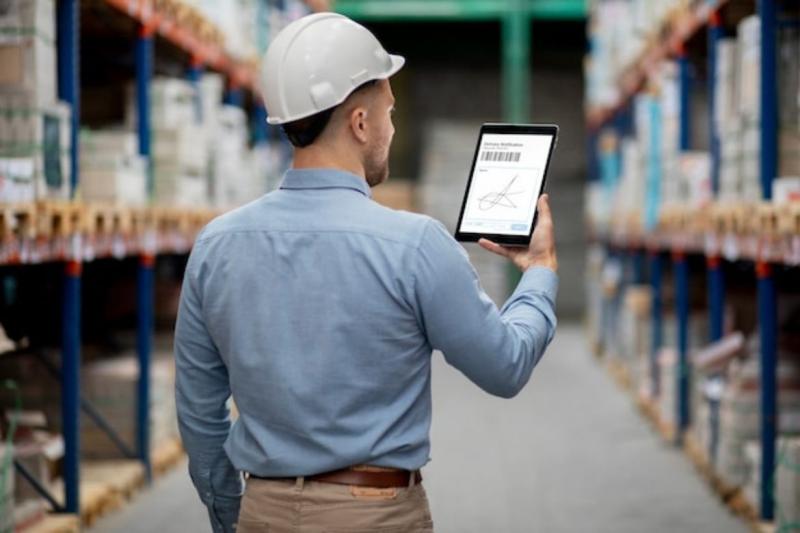How Smart Logistics Technology Improves Last-Mile Efficiency

Last-mile delivery has always been one of the most
challenging aspects of logistics. It’s the final step in the supply chain and
the one that directly impacts customer satisfaction. Businesses today are
facing increasing pressure to provide fast, reliable, and cost-effective
delivery solutions, making smart logistics technology more important than ever.
By integrating advanced solutions such as a transport
management system, automated route optimization, and real-time
tracking, businesses can significantly enhance their last-mile efficiency. This
article explores how businesses can leverage logistics technology to improve
last-mile delivery and why adopting smart solutions is essential for staying
competitive.
The Growing Demand for Smart
Logistics Technology
The rise of eCommerce and increasing customer expectations
have reshaped the logistics industry. Customers expect same-day or next-day
delivery, real-time tracking, and seamless communication. Traditional logistics
models are no longer sufficient to meet these demands. This is where smart
logistics technology comes into play.
A transport
management system (TMS) is one of the key components of modern logistics
technology. It helps businesses optimize delivery routes, track shipments in
real-time, and improve communication between drivers and customers. With the
right system in place, companies can minimize delays, reduce operational costs,
and improve overall service levels.
How Smart Logistics Technology
Enhances Last-Mile Efficiency
1. Route Optimization and Real-Time
Tracking
One of the biggest challenges in last-mile delivery is
unpredictable delays due to traffic congestion, roadblocks, and weather
conditions. Advanced route optimization software can analyze multiple factors
and provide the most efficient delivery routes. Real-time tracking allows
logistics managers and customers to monitor the movement of packages, ensuring
greater transparency and trust in the delivery process.
2. Automated Dispatching and Driver
Management
With the use of AI-powered dispatching systems, businesses
can automatically assign deliveries to drivers based on factors like location,
delivery priority, and vehicle capacity. This not only reduces manual errors
but also ensures that deliveries are made in the most efficient manner
possible. Additionally, smart logistics technology enables better communication
between drivers and dispatch teams, reducing miscommunication and improving
response times.
3. Improved Customer Experience with
Smart Notifications
Customers today expect real-time updates on their deliveries.
Smart logistics technology allows businesses to send automated notifications to
customers, providing them with estimated delivery times, tracking updates, and
alerts in case of any delays. This improves customer satisfaction and reduces
the number of failed delivery attempts.
4. Integration with a Transport
Management System (TMS)
A transport
management system acts as the backbone of an efficient last-mile
delivery network. It integrates seamlessly with warehouse management systems,
optimizing inventory flow and ensuring that deliveries are dispatched in a
timely manner. Businesses that invest in a robust TMS can reduce operational
inefficiencies, lower transportation costs, and enhance their overall logistics
strategy.
5. Use of IoT and AI for Predictive
Analytics
Internet of Things (IoT) devices and Artificial Intelligence
(AI) are revolutionizing logistics. IoT-enabled sensors in delivery vehicles
can monitor temperature-sensitive shipments, detect route deviations, and
provide data insights that help optimize fleet performance. AI-powered
analytics can predict potential delivery disruptions, allowing businesses to
proactively address issues before they impact customers.
6. Sustainable Last-Mile Solutions
As businesses focus more on sustainability, smart logistics
technology is helping reduce carbon footprints. Route optimization minimizes
fuel consumption, while electric and hybrid delivery vehicles further cut
emissions. Additionally, crowd-sourced delivery models and micro-fulfillment
centers are being used to bring goods closer to customers, reducing delivery
times and costs.
Why Businesses Need to Invest in
Smart Logistics Technology
Investing in logistics technology is no longer an option;
it’s a necessity. Businesses that fail to adopt smart logistics solutions risk
falling behind competitors who offer faster, more efficient, and more
cost-effective delivery services. Here are some key reasons why businesses
should integrate smart logistics technology:
- Increased
Efficiency: Automated processes and real-time tracking eliminate
inefficiencies in the supply chain.
- Cost
Savings: Optimized routes and better resource utilization reduce transportation
and labor costs.
- Better
Customer Satisfaction: Improved communication and faster deliveries
lead to happier customers.
- Scalability:
Logistics technology enables businesses to handle increased order volumes
without compromising service quality.
- Competitive
Advantage: Companies that leverage smart logistics gain a competitive
edge in the market.
Choosing the Right Logistics
Technology Partner
Selecting the right logistics technology provider is crucial
for businesses looking to optimize their last-mile operations. A powerful and
easy-to-use warehouse management system, combined with an efficient transport management system, can
transform logistics operations and drive business growth.
One such provider is CartonCloud, a logistics
software company that offers an intuitive and feature-rich platform to
streamline warehouse and transport operations. With flexible pricing starting
at just $599 per month, businesses can access a scalable solution that meets
their unique logistics needs. CartonCloud
enables businesses to automate workflows, improve efficiency, and grow their
operations seamlessly.
Conclusion
Last-mile delivery remains one of the most complex and critical parts of logistics. By adopting smart logistics technology, businesses can improve efficiency, reduce costs, and provide a seamless delivery experience for their customers. A transport management system plays a crucial role in optimizing last-mile operations, and integrating a robust logistics platform like CartonCloud can help businesses scale and succeed in today’s fast-paced market. Investing in the right technology today ensures long-term growth and a competitive edge in the logistics industry.
Post Your Ad Here

Comments (1)
BatchMaster UK5
Process Manufacturing ERP Software
Great article! Smart logistics tech is truly transforming last-mile delivery. Real-time tracking, automation, and data-driven insights are making deliveries faster, more efficient, and customer-friendly. Looking forward to seeing how these innovations continue to evolve!